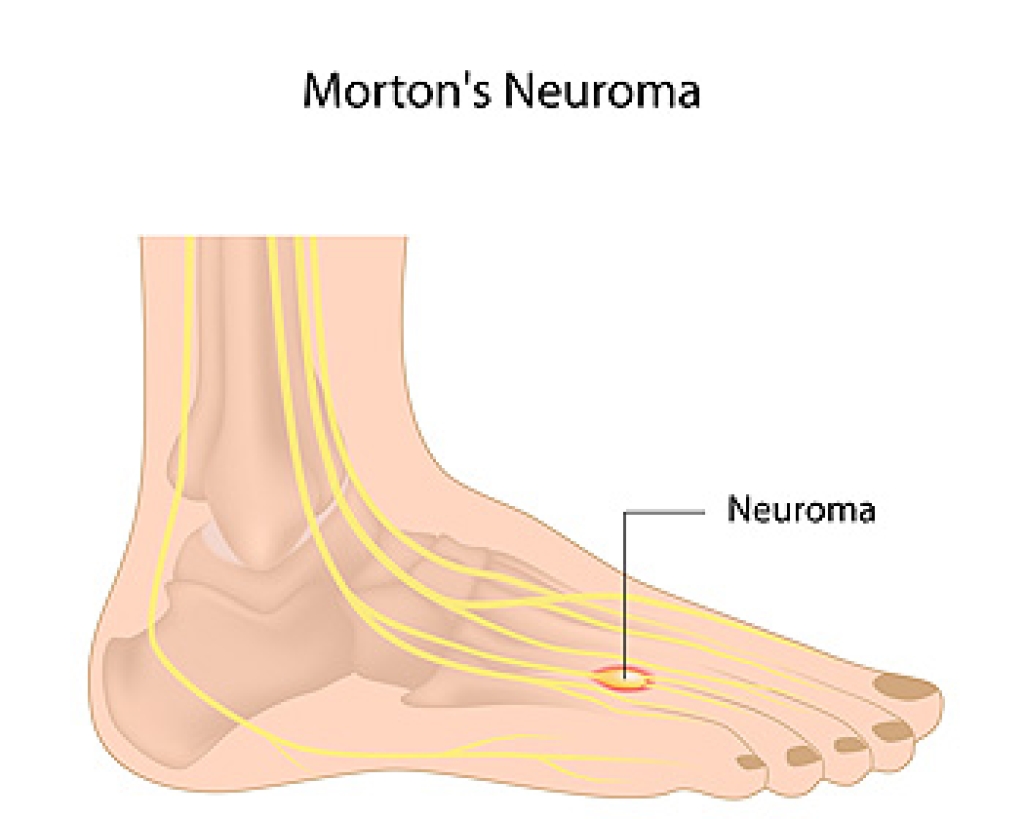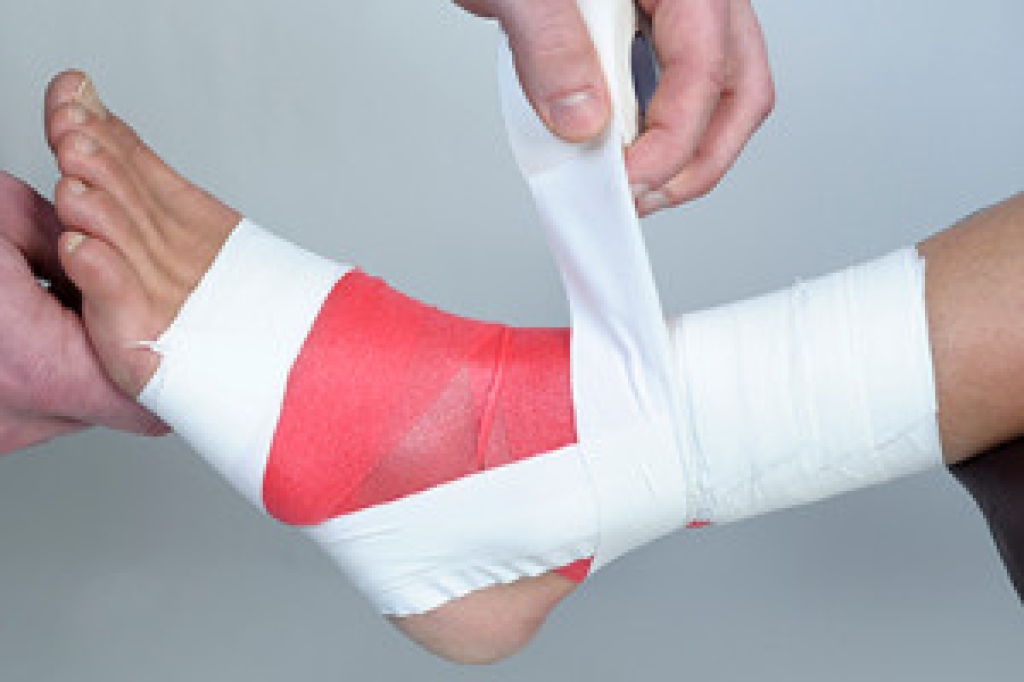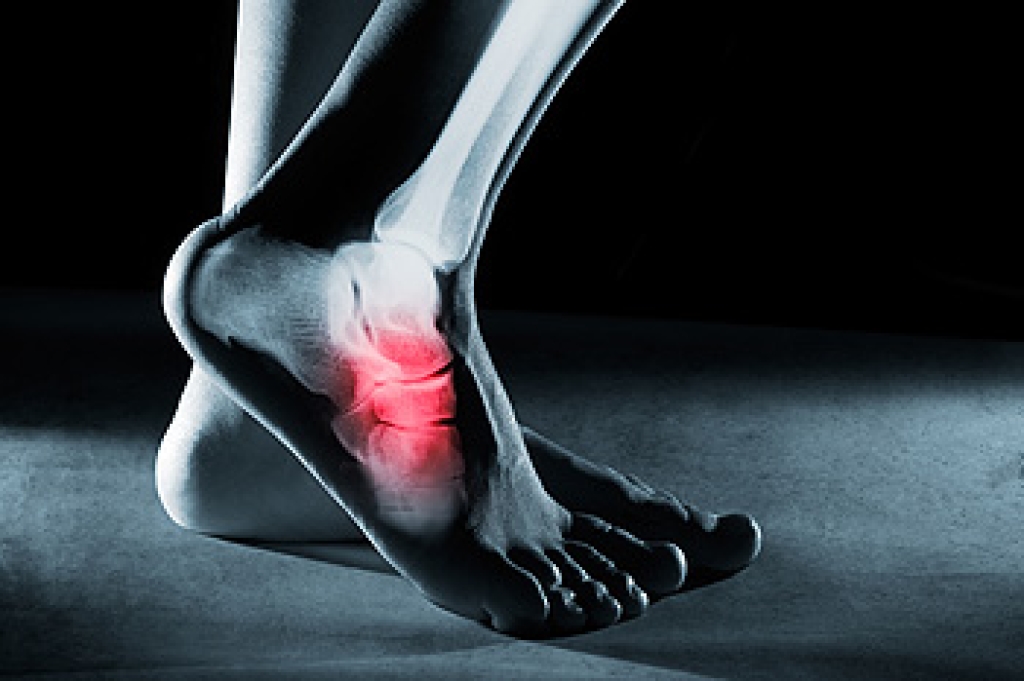In the foot, arthritis causes inflammatio n and swelling of the cartilage and in the lining of the joints. Arthritic feet can result in a loss of mobility and independence, but early diagnosis will help significantly. Besides showing up hereditarily, some other causes of arthritis include bacterial and viral infections in the joints, ignored injuries in athletes and industrial workers, and bowel disorders such as colitis and ileitis that lead to arthritis. The three main types of arthritis most often found in the foot are osteoarthritis, rheumatoid arthritis and gout. The symptoms to look for in arthritis are swelling in one or more of the joints, recurring pain or tenderness, redness or stiffness in the joints and any skin changes or rashes. There are also several treatments available for arthritis in the feet. These include physical therapy and foot exercises, aspirin and orthotics. Surgery would be a last resort option if the joints in the foot are extensively damaged and need to be replaced with artificial joints. If you feel you are developing some sort of arthritis in your feet, it is advised that you consult with a podiatrist.
n and swelling of the cartilage and in the lining of the joints. Arthritic feet can result in a loss of mobility and independence, but early diagnosis will help significantly. Besides showing up hereditarily, some other causes of arthritis include bacterial and viral infections in the joints, ignored injuries in athletes and industrial workers, and bowel disorders such as colitis and ileitis that lead to arthritis. The three main types of arthritis most often found in the foot are osteoarthritis, rheumatoid arthritis and gout. The symptoms to look for in arthritis are swelling in one or more of the joints, recurring pain or tenderness, redness or stiffness in the joints and any skin changes or rashes. There are also several treatments available for arthritis in the feet. These include physical therapy and foot exercises, aspirin and orthotics. Surgery would be a last resort option if the joints in the foot are extensively damaged and need to be replaced with artificial joints. If you feel you are developing some sort of arthritis in your feet, it is advised that you consult with a podiatrist.
Arthritis can be a difficult condition to live with. If you are seeking treatment, contact one of our podiatrists from Westside Podiatry Center, LLP. Our doctors can provide the care you need to keep you pain-free and on your feet.
Arthritic Foot Care
Arthritis is a term that is commonly used to describe joint pain. The condition itself can occur to anyone of any age, race, or gender, and there are over 100 types of it. Nevertheless, arthritis is more commonly found in women compared to men, and it is also more prevalent in those who are overweight. The causes of arthritis vary depending on which type of arthritis you have. Osteoarthritis for example, is often caused by injury, while rheumatoid arthritis is caused by a misdirected immune system.
Symptoms
- Swelling
- Pain
- Stiffness
- Decreased Range of Motion
Arthritic symptoms range in severity, and they may come and go. Some symptoms stay the same for several years but could potentially get worse with time. Severe cases of arthritis can prevent its sufferers from performing daily activities and make walking difficult.
Risk Factors
- Occupation – Occupations requiring repetitive knee movements have been linked to osteoarthritis
- Obesity – Excess weight can contribute to osteoarthritis development
- Infection – Microbial agents can infect the joints and trigger arthritis
- Joint Injuries – Damage to joints may lead to osteoarthritis
- Age – Risk increases with age
- Gender –Most types are more common in women
- Genetics – Arthritis can be hereditary
If you suspect your arthritis is affecting your feet, it is crucial that you see a podiatrist immediately. Your doctor will be able to address your specific case and help you decide which treatment method is best for you.
If you have any questions please feel free to contact one of our offices located in Liverpool, Camillus, Skaneateles, Oswego, and Cicero, NY . We offer the newest diagnostic tools and technology to treat your foot and ankle needs.




